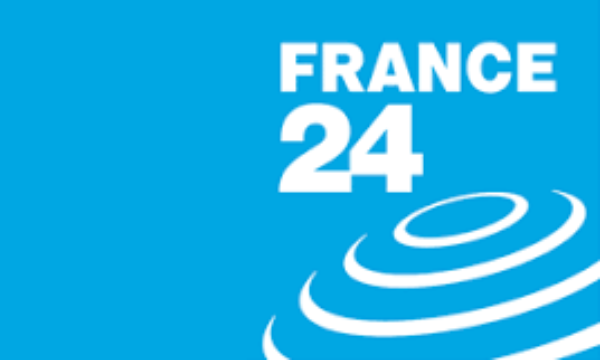The flier advertising the Florida nursing school came in the mailbox of Ramatu Ali’s Delaware home. It promised a “bridge” program for lower-level nurses to become higher-skill, better-paid registered nurses.
Ali and four of her friends — all licensed practical nurses from the Philadelphia area — piled into Ali’s car and drove to an open house at a Penn’s Landing hotel to learn more about the Palm Beach School of Nursing.
There, they met school owner Johanah Napoleon, who promised they could earn an associate’s degree within 12 months. The school accepted college credits from other programs, offered a pay-as-you-go tuition plan, and required only a few trips to Florida for some coursework combined with online learning tailored for LPNs like them with full-time jobs, Ali said.
It turned out to be too good to be true. Napoleon pleaded guilty last year to a multimillion-dollar scheme in which she sold fake college degrees to students who then used the phony credentials to fraudulently get nursing licenses from states including Pennsylvania, Delaware, New Jersey, and New York.
The Inquirer spoke to Ali and two other students who described marathon trips to Florida and back, hours of online learning in the evenings after work, hands-on clinical training, and shelling out up to $14,000 for degrees they thought were legitimate.
Prior to enrolling in 2018, Ali and the two other students said they checked to make sure that the school was approved by the Florida Board of Nursing. The school was in good standing at the time.
“We did everything we were supposed to do,” Ali said. “I went to school. I did the work.”
Authorities in Delaware, where Ali, 57, lives about 25 miles outside of Philadelphia, disagreed. Late last year, the nursing board annulled her license, along with at least 34 other nurses who graduated from Florida’s sham schools. She voluntarily surrendered her New York license at the request of authorities there.
Federal authorities say Ali — along with more than 7,600 other students — got degrees from one of four brick-and-mortar schools in Florida that operated as nursing diploma mills. The school owners worked with a network of recruiters in several states who funneled students into the unscrupulous programs. So far, the ongoing federal investigation, dubbed “Operation Nightingale,” has resulted in criminal indictments of 27 school operators and recruiters, including two from South Jersey.
To date, there have been no reports of patient harm.
Nursing boards in all 50 states have been culling through their licensure rolls to identify nurses who submitted degrees from schools implicated in the scheme.
Early last month, Pennsylvania’s Board of Nursing sent disciplinary notices to 18 nurses with degrees from either the Palm Beach School of Nursing or the Med-Life Institute West Palm Beach — both formerly run by Napoleon. The nurses had 30 days to contest allegations that they applied for a license using fraudulent degrees and transcripts. If found to have submitted bogus paperwork, the board can revoke their licenses.
On May 31, Pennsylvania’s board sent a second batch of notices to an additional 16 nurses who said they earned degrees from two other Florida schools: Siena College of Health and Sacred Heart International Institute.
“This is an active, high-priority investigation with multiple upcoming chapters,” said Fernando Porras, an assistant special agent with the Office of Inspector General in the U.S. Department of Health and Human Services. “We will hold bad actors accountable for this outrageous scheme.”
A scheme unfolds
Ali said she first got interested in nursing as a child growing up in Ghana. At age 6, she learned to empty and clean her stepmom’s colostomy bag.
In 2008, she got licensed in Pennsylvania as an LPN, a health-care worker who delivers basic patient care. She qualified after 18 months of studies at Lancaster County Career & Technology Center, making the 90-minute commute there from her Delaware home, she said.
She doesn’t know how the Florida school got her address to mail the flier. During the open house in Philadelphia, Ali said she introduced herself to the owner, Napoleon, who promised to shave $400 to $600 off the roughly $10,000 tuition as a reward for bringing her friends to the event.
Ali started at the Palm Beach School of Nursing in February 2018 after flying to Florida, where she took an entrance exam to get into the school and passed a criminal-background check.
Ali and the two other nurses who spoke with The Inquirer said much of coursework was online. Ali said she logged on to her computer to take classes every evening after her 7 a.m.-to-3 p.m. shift at Bayada Home Health Care for almost a year.
The Florida Board of Nursing does not regulate “distance learning” and Napoleon’s program was only “approved to deliver traditional face-to-face instruction,” according to a statement from Florida’s Department of Health. Under state requirements, students were expected to complete 1,665 hours of instruction and 720 hours of clinical training.
Ali said she had no idea that Napoleon’s school wasn’t authorized to offer online learning.
During a hearing before Delaware’s nursing board on March 8, Ali testified that she traveled to Florida “about five times,” but did most of her “clinicals through simulation,” state documents show. Delaware regulations dictate that no more than 50% of clinical training can be done this way.
Palm Beach school administrators instructed Ali to go through New York to take her state licensing exam, explaining that New York still recognized the school’s credentials, Ali told The Inquirer.
Federal authorities, however, say the operators of illegitimate schools steered students to New York because the state allows students to take the exam “as many times as you want.”
In Pennsylvania, students are expected to take and pass the exam for the first time within one year of completing their education. Pennsylvania will make an exception if the nurse holds a license to practice from another state.
Of the 18 nurses in Pennsylvania who got flagged by the nursing board early last month, nine were first licensed through New York, according to an Inquirer review of the state’s licensure database.
Ali, who graduated from the Palm Beach school in December 2018, said she twice sat for the exam before passing in 2020. She later got her license as a registered nurse in Delaware and went to work at Fresenius Kidney Care Christiana in Wilmington.
In November 2022, Delaware officials sent her a letter informing her that her licensed had been annulled. Her employer took her off the schedule. She became so depressed that her sister took her car keys for fear that she would harm herself, she said.
“This year alone, I think I’ve cried more than all my life,” Ali said. “I think about all this time that I wasted, all my efforts and my money, and people see you like you are a fraud. That’s what hurts.”
Ali said she is now working as an LPN, licensed through Pennsylvania, for a home care company for less money and no health benefits.
`Not a trusted source’
Nearly 100 nurses nationwide who claim to have been wrongly accused of buying fake degrees are now represented by Philadelphia-area lawyer Joseph Lento. The nurses are fighting state nursing boards to keep their licenses.
Lento said 90% of his clients came from Caribbean or Africa countries and feel victimized by school operators and by state regulators. He plans to pursue a class-action civil lawsuit on behalf of nurses he says are innocent, he said.
Many of Lento’s clients were named in court proceedings after Napoleon, a Haiti-born nurse and the owner of the Palm Beach school, pleaded guilty last year to conspiracy to commit health-care and wire fraud. She faces up to 20 years in federal prison.
As part of a plea agreement, Napoleon gave investigators a list of 4,989 students “who did not complete the required program hours and clinical training necessary to obtain either a practical nursing diploma and transcript or a nursing associate in science degree and transcript,” criminal records show.
Lento said authorities should not accept Napoleon’s word: “Is this really any different than the jailhouse informant testifying against you at a criminal trial to curry favor with respect to the prosecution?”
Florida criminal defense lawyer Joel DeFabio, who represents Napoleon, said his client wouldn’t have pleaded guilty to “something that wasn’t true.” The nurses at her school knew they weren’t meeting standard requirements for clinical time, he added.
“They can say whatever they want to say, but the requirements are pretty plain and they weren’t met,” DeFabio said. “They knew what they were doing.”
‘Nothing feels real’
One of the nurses implicated is a 44-year-old single mom who came to Philadelphia from Zimbabwe in 1999. She asked The Inquirer for anonymity because she didn’t want all the patients she’s cared for over the years to think she’s a fraud.
“I just want them to remember me as being the nurse that gave them the best no matter what anybody says,” she said during a recent Zoom interview with her lawyer, Lento.
A licensed LPN in Pennsylvania, the nurse said she learned about the Palm Beach School of Nursing through a colleague at the hospital where she worked.
Upon enrolling in December 2016, she traveled to Florida four times and spent hours online taking courses with school instructors. She said she completed her clinical hours at the Philadelphia hospital where she worked with oversight from a more advanced nurse at her job who signed off on the requirements for the Palm Beach program.
The woman said she paid about $14,000 in installments to Palm Beach; graduated in 2018; passed the licensure exam, or National Council Licensure Examination (NCLEX), in 2019; and applied to the state nursing board soon afterward. But right away, Pennsylvania’s board began asking questions about discrepancies in her transcript.
When the board couldn’t get answers from the school, she said she flew down to Florida in early 2020 and found the building shuttered.
An investigator with Pennsylvania’s nursing board contacted her in November 2021 and started asking questions about the school.
Pennsylvania granted her a provisional RN license in May 2021, she said.
Two months later, in July 2021, federal prosecutors announced charges against Napoleon and two coconspirators.
The woman said her hospital supervisor took her off the schedule. Then, after her name showed up on Napoleon’s list last year, the hospital fired her, she said.
Her case is scheduled to go before the nursing board in late summer. For now, she’s working more hours at a rehab facility in Philadelphia.
“Nothing feels real anymore,” she said, sobbing. “How was I supposed to know the quality of the education I was getting? It’s like when you have kids in your house, you’re the one who is supposed to be protecting them. It’s your job. You didn’t protect me.”







